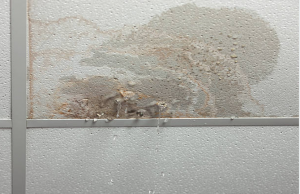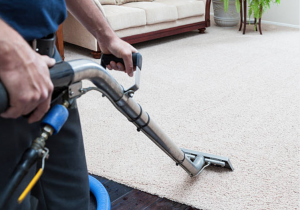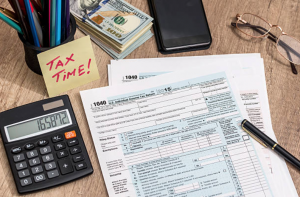If you want to save money on a house you’re preparing to either sell or rent, you can actually find just about everything you need at the home improvement store around the corner. You don’t need to go to home depot and get these crazy tools and materials, or order special, custom things online.
Below are some incredibly useful tips to use when you’re preparing to sell or rent a house. Every single homeowner, house flipper an landlord should know these tips before they sell or rent. Below are the best ways to save money when preparing to sell a house! It doesn’t matter if the house is your own, or if you’re a real estate agent or an investor. These tips are going to have a profound effect when it comes to saving money.
Get rid of odors
You want the house to smell good. Renting or selling a house will prove difficult if the house stinks. Gonzo Odor Eliminator is one of the best products out there to get rid of pet urine smells, cigarette/fire smoke, or bacteria. What Gonzo odor eliminator is, is a small pouch of rocks that pulls odors directly out of the air. Generally, the process for it to work is about 6 hours. What’s more, is that if you lay it in the sun after you use it, you can use it again and again. The place you’ll want to lay the pouch directly inside of an air return duct. Why? Because that’s where all of the air is being sucked into for the house.
After getting rid of the smell, you’ve got to replace it with something that smells good. Based upon years of experience, the best product is probably Scentsy. What it is, is a candle wax warmer with wax bars. They come in all different scents. What’s great is that there is no flame. The worry of the house burning down is eliminated. You can actually purchase a timer for three bucks. This way, when someone is coming to view the house, you can set it. Usually, these Scentsy bars will last about a week. With the timer, you can get almost three out of them.
A great smelling house makes a huge impact in general, but it also makes a huge impact on women. Women want things to smell nice. When deciding on the scent of the candle wax warmer, bring a female friend along with you.
Remove wall scuffs from the wall with a Magic Eraser
Perhaps the best product out there for wall marks is Mr. Clean’s Magic Eraser. These things are really lifesavers. They’re also incredibly easy to use. Put a little cleaner inside of them, and then you wet them a little. You can then fill in the actual holes with a nail filler.
Remove any and all ceiling stains
Never show a house with ceiling stains. First off, people are going to wonder  if it’s mold even when it isn’t. You must first figure out what the actual problem is that is causing the leak. Afterward, you’ve got to seal it and blend the area to look like the rest. Upshot is a fantastic option, and probably the best out there. It is a gel based primer that helps blend the stain in.
if it’s mold even when it isn’t. You must first figure out what the actual problem is that is causing the leak. Afterward, you’ve got to seal it and blend the area to look like the rest. Upshot is a fantastic option, and probably the best out there. It is a gel based primer that helps blend the stain in.
If it doesn’t, though, you’re going to have to paint. It’s likely that the primer will be enough to cover the ceiling so that it doesn’t stick out like a sore thumb. Just to repeat, you do not want to show a house with a stained ceiling. Buyers are going to worry if there’s a roof link. You’ll then have to listen to listen to buyers demanding a roof replacement when there’s not even an issue.
Remove any and all stains from the carpet
Never show a home with terrible carpet. If it’s horrible condition, you’ll likely have to replace it. But you would be shocked at how well professional carpet cleaners work. One of the best products out there today to use is Folex. It is fantastic at removing stains. You spray it on the stain, then take a rag and rub the stain thoroughly then blot out with a paper towel. It would actually behoove you to keep it in your car so that if you go to look at a property you can use it, and see if the stains come out or not. If they don’t, you’ll have an idea of whether or not you’re about to have to replace wall-to-wall carpet.
Cover the carpet with a plastic walkway
After having the carpet cleaned (either with Folex or professionally),  you should absolutely put down a carpet shield. A carpet shield is self-adhesive film which will protect from spills. It will also make people think you have new carpet, even when you don’t. Plus, when you use this carpet shield to form lanes from each room, people will generally not walk on the carpet as much.
you should absolutely put down a carpet shield. A carpet shield is self-adhesive film which will protect from spills. It will also make people think you have new carpet, even when you don’t. Plus, when you use this carpet shield to form lanes from each room, people will generally not walk on the carpet as much.
This means nobody will really know how many people have been there to view the property. The more foot tracks people see on the carpet, the more people they assume have been there. You don’t want them to make assumptions about whether others didn’t want the house or not.
When should you sell your investment property?
An investment property, by definition, is a place with one simple goal: to make money. So if you want to learn how to sell an investment property, we’d wager that maximizing those profits is likely your top priority.
In many ways, the steps to selling an investment property are the same as selling a home where you live: You hire a listing agent who will market your property and start bringing in potential buyers. Still, since investment properties operate under different rules taxwise than a home where you live, you’ll want to ask certain questions. Here are the factors to consider—plus the fun part: how much money you could stand to make. First things first: Are you sure you want to sell? Because there are other options that could drum up income—steady income—such as renting it out. So yes, there are valid reasons to sell, but you should make sure yours make the cut:
- The neighborhood is changing. If the hood is hot, and you’ve made a pile of cash, it could be a good time to take your money and run. Conversely, if a neighborhood is deteriorating, you might want to get out before it falls too far. Even if you end up only breaking even on your property, at least you won’t lose money if the market continues to dive.
- The property needs massive repairs. Maybe you’re looking at a foundation or roof that needs overhauling, or another big-ticket expense on a rental house. Or, a condo you’ve invested in is due for a major assessment. If substantial repair work is needed, or you just don’t want to put the energy into it, it is likely a good time to move on. However, you need to disclose these issues and will likely figure them into the price notes.
- It’s a tax liability. Owning property, even as an investment, can bump you up a tax bracket. That’s a good reason to sell, especially if you have no interest in being a landlord. You also should take note of potential expiration of tax abatements. If, for example, your investment is a condominium in which you generate a rental income, the expiration of an abatement and the resulting tax increase will impact your finances, so consider the advantages to selling before this occurs.
- You could get a better return elsewhere. Most important, consider your options. If you have held a property for many years, it has likely increased in value, which can allow you to sell and diversify into an emerging neighborhood or multifamily homes.
Consider selling if you’re tired of dealing with it
If the investment property is making money, the changing factor could be you. Some investors don’t want to leave their property behind if they’re moving away or are just tired of dealing with property.  Maybe you’re seeking a better investment property or a better opportunity. Fair. But, still you want to make sure you’re not selling at the wrong time and giving up what could be a opportunity to make money in real estate.
Maybe you’re seeking a better investment property or a better opportunity. Fair. But, still you want to make sure you’re not selling at the wrong time and giving up what could be a opportunity to make money in real estate.
No matter what the scenario is, understanding market conditions is what should determine your decision, not your feelings. There are some investors who regret selling because rushed and should have waited, while there are others who waited too long because they thought “more time equals more money.”
Who’s going to buy the investment property?
Even though you’ve used the property as an investment, the home may attract actual buyers who want to live there in addition to landlords and investors. In fact, if your investment property has renters in it already, you will probably want to give them the option to buy the place since they might prefer to stay put and be happy to pay for the privilege, which also makes your job easy!
A little bit about rental properties
Unlike selling a stock, investment properties can’t be unloaded in a few seconds with a click of your mouse. The time between the decision to sell and the actual date of sale is often measured in weeks or months. Selling your own home can be an intimidating process if you don’t know where to start, but selling an investment property requires even more work. The amount of capital and the taxation issues surrounding the realization of that capital are complex when dealing with investment real estate. It is not, however, impossible to accomplish on your own.
Why sell a rental property?
The reasons for selling a rental property vary. Landlords who personally manage their properties may move and want to buy a different investment property near their new residence. Or a landlord may want to cash in on the appreciation of a rental property rather than accumulating money through rent. It may even be a case of a property that is losing money, either through vacancy or not enough rent to cover the expenses. Regardless of the reason, real estate investors looking to sell will have to deal with taxes.
If you’re not even breaking even on an investment property, that’s a reason to sell. Making money is the number one objective in real estate. Maybe your investment property was making money initially, but due to various reasons, it’s generating negative cash-flow. This can be from vacancies, damages, or costs have gone up too much like insurance or taxes. On the other hand, an investor could be making money but is anticipating some major repairs.
So definitely sell if you’re experiencing this, right? Well, understand the market conditions really well. You might be able to make more money by holding on to the property for a bit longer. Check out appreciation, rental rates, and future development plans. If these are going to increase soon, hold on to the property and consult an agent in the meantime.
Tax liabilities
Profits on the sale of investment property are regarded as taxable income.  However, in many cases the sale may qualify for preferential capital gains tax rates. In addition, if you qualify, you can reduce your tax liability by taking advantage of an exclusion, by deducting losses from other transactions, and by writing off some of your investment expenses.
However, in many cases the sale may qualify for preferential capital gains tax rates. In addition, if you qualify, you can reduce your tax liability by taking advantage of an exclusion, by deducting losses from other transactions, and by writing off some of your investment expenses.
Capital Gains Tax
The capital gains tax applies to profits you derive from the sale of your investment property. Capital gains tax rates are lower than ordinary tax rates. Your profit is measured by the sales price minus your adjusted basis (the price you originally paid for the property plus the cost of improvements, eligible legal fees and selling fees). You must have owned your property for more than one year before you sold it; otherwise, you pay ordinary income tax rates.
Capital Loss Deduction
If you enjoyed a capital gain on one sale of investment property but incurred a capital loss on another sale of investment property; in other words, if you sold a property at a loss – you can subtract your capital loss in one transaction from your capital gain in another transaction. This is because capital gains tax is levied on your net capital gain for all transactions throughout the tax year, not your gain on each transaction. To qualify for a deduction, your capital loss must be incurred from the sale of property held for investment purposes rather than personal use.
Leave a Reply